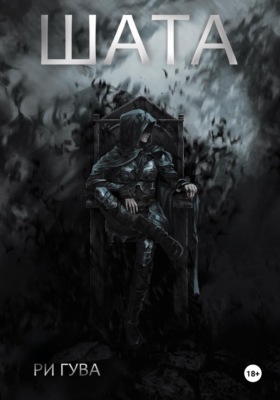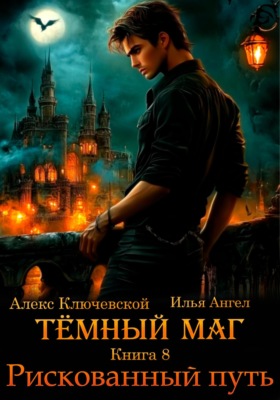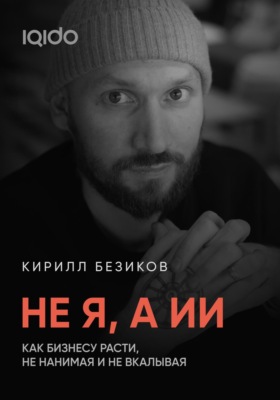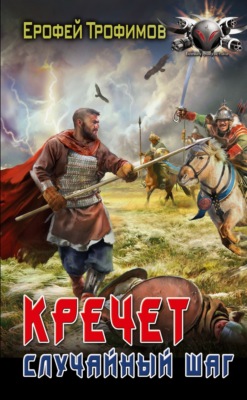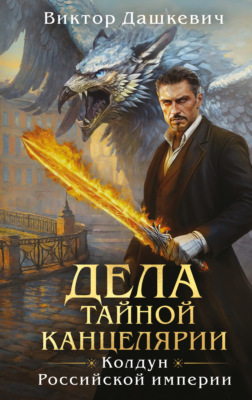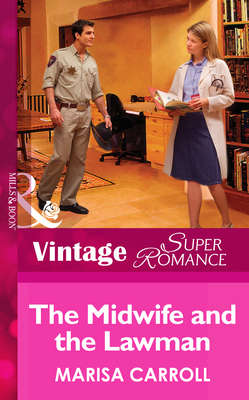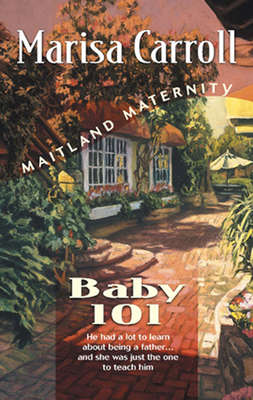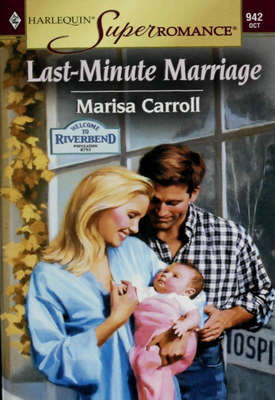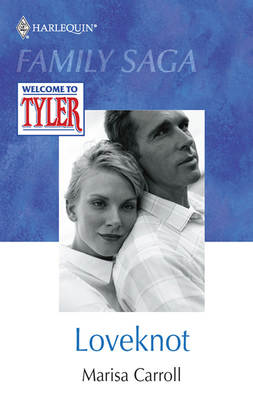Czytaj książkę: «Winter Soldier»
“Chief of Neurosurgery is a long way from a small practice in Slate Hollow, Kentucky, Adam. Almost a different world.” ABOUT THE AUTHOR Title Page Epigraph CHAPTER ONE CHAPTER TWO CHAPTER THREE CHAPTER FOUR CHAPTER FIVE CHAPTER SIX CHAPTER SEVEN CHAPTER EIGHT CHAPTER NINE CHAPTER TEN CHAPTER ELEVEN CHAPTER TWELVE CHAPTER THIRTEEN CHAPTER FOURTEEN CHAPTER FIFTEEN CHAPTER SIXTEEN CHAPTER SEVENTEEN CHAPTER EIGHTEEN CHAPTER NINETEEN EPILOGUE Copyright
“Chief of Neurosurgery is a long way from a small practice in Slate Hollow, Kentucky, Adam. Almost a different world.”
Leah wondered why she’d said that. It sounded almost as if she was asking him—what? To leave Chicago and come to Kentucky with her? Wasn’t that what she really wanted? For him to make a commitment to her—and the baby he didn’t even know she was carrying?
“Leah, my son is coming to live with me. We’ve been apart for a long time. I have to concentrate all my energy on Brian.”
His energy. Not his love. His words took her breath and sent a stab of pain through her heart. Adam would never open himself to love and to being loved. Once more she realized how close she’d come to caring too much for this man. The decision she’d agonized over since learning she was pregnant was made in an instant. “I understand. I really have to be going.”
“Leah, if there’s ever anything I can—”
Leah took a step backward, avoiding his touch. She wasn’t made of stone, even if he appeared to be. “There’s nothing you can do for me.”
Or our baby.
ABOUT THE AUTHOR
Carol Wagner and Marian Scharf—the award-winning writing team of Marisa Carroll—are sisters living in a small northwest Ohio town, where they are surrounded by five generations of family and friends. Winter Soldier is their twentyninth book.
Winter Soldier
Marisa Carroll

These are the times that try men’s souls.
The summer soldier and the sunshine patriot
will in this crisis,
Shrink from the service of his country,
But he that stands it now,
Deserves the love and thanks of man and woman.
—Thomas Paine, December 23, 1776
CHAPTER ONE
THAN SON NHUT.
Even above the roar of the jet engine he caught the echo of the pilot’s words, felt them snag the edge of his consciousness. Than Son Nhut. For almost twenty-five years, more than half his lifetime, Adam Sauder, had returned to that place only in his nightmares. Today, he was actually going back.
Before he heard her voice he smelled her perfume, a light, lemony fragrance had tantalized his senses. “Dr. Sauder?” He pretended to be asleep. Maybe she’d go back to her own seat, leave him alone. God, it had been such a long flight. Thirty-six hours from Chicago to—
She spoke again, a bit more forcefully this time. “Dr. Sauder? Are you awake?”
Damn, she’s persistent.
He rolled his head toward the well-modulated but demanding voice, but didn’t open his eyes. “I’m awake,” he said in the don’t-tread-on-me tone that had struck fear into the hearts of interns and residents at St. Barnabas Medical Center for the past five years.
“I thought so.” She sounded neither cowed nor embarrassed. “We’ll be landing in Saigon in a few minutes. I thought I should introduce myself.”
She could have done that anytime since they’d left Chicago. Why did she have to pick now, when he had almost willed himself to that gray nothingness between waking and sleeping that was the only place he seemed to find peace? Saigon. Than Son Nhut. The names wouldn’t die, just like his memories of the days he’d spent there. “I thought they called it Ho Chi Minh City now.”
She chuckled, a sound as light and pleasant as her perfume. “No one calls it that. Even our luggage tags say Saigon.”
The laughter was irresistible. He lifted his heavy eyelids and looked at his tormentor. Clear hazel eyes, neither green nor gold, stared steadily back. He blinked and her face came into focus. She smiled, and like magic her deceptively ordinary features turned from plain to pretty. “I’m your gas-passer,” she said.
Gas-passer? She must have been raised on M*A*S*H reruns. “You’re my anesthesiologist?” She didn’t look a lot older than his nineteen-year-old son, Brian. She sure as hell wasn’t old enough to be a doctor.
“Nurse anesthetist,” she clarified.
They didn’t give out advanced nursing degrees to teenagers, either. Mentally he added ten years to her age, pegging her somewhere close to thirty.
“I’m Leah Gentry.” She held out her hand. He took it automatically. Her handshake was as firm and no-nonsense as her voice and, surprisingly enough, as potent as her smile. He pulled his hand from hers and her smile disappeared. “I’m in practice with Caleb Owens,” she said more formally.
He knew who Caleb Owens was, although he’d never met the man. He was a friend of a friend—or an ex-friend. Adam directed a sour glance at the back of B. J. Walton’s head, as his old Marine buddy lolled, snoring away two rows in front of him.
B.J. had made it big in computers in the eighties. He had more money than he could count—not that he didn’t put a lot of it to good use. He’d sponsored half-a-dozen private medical-aid missions to Central America, Africa and even Russia over the past ten years, and he’d badgered and bullied and made a damned pest of himself until Adam had promised to be part of the next one.
B.J. had made a big deal of Adam’s moment of weakness. He’d called a press conference and talked up the humanitarian mission of top-notch nurses and doctors taking time from their busy lives and careers to help the less fortunate. Then he’d promised a bundle toward the new spinal-injury rehab center if St. Barnabas agreed to let Adam come along. St. B’s knew a good deal when they saw one. They agreed to supply all the specialized equipment Adam needed and offered to send technicians to keep it running at peak efficiency. It was a hell of a public-relations coup, the hospital administrator had told him. And it wouldn’t do Adam any harm in his quest to be the next chief of neurosurgery, either. And then BJ. had dropped his bombshell.
This time they were going to Vietnam.
“Caleb was so disappointed he couldn’t make the trip. He was looking forward to assisting you.”
Adam continued to scowl at the back of B.J.’s head a moment longer, then shifted his gaze. “I’ll manage without him. But what about you?”
She looked puzzled. “I’ll be fine.”
“I mean, are you up to operating with me? Owens is a general surgeon. You’re probably used to gallbladder and uterine excisions, not keeping someone under and stable while I tinker around in his brain for eight or ten hours.”
“Caleb does a little of everything. Slate Hollow’s a small place. You have to be flexible.” A hint of defensiveness had crept into her voice. Adam suppressed a momentary twinge of conscience. She was a colleague, a professional. They’d be working together for the next three weeks. He was barking at her as if she was a not-too-bright first-year intern.
“Ever scrubbed for brain surgery before?”
“You mean other than bashing a patient on the head with a hammer, while Caleb drilled through his skull with the Black and Decker Two Speed to let out the evil spirits?”
“I didn’t mean—”
She cut him off. “Yes, you did.” She was right. He couldn’t deny it without lying through his teeth, so he kept quiet. Neurosurgeons were considered the glamour boys of medicine and had a reputation for being arrogant and imperious. He’d just reinforced the stereotype, big time. “The answer is yes, Doctor. I have worked with your kind before.”
Your kind. The emphasis on the words was so slight most people wouldn’t have noticed, but he did. He almost smiled. She was a fighter. Good. They would need that kind of grit and stamina where they were going. “I apologize,” he said. “B.J. told me he always gets the best people for these jaunts. He was right. What I should have asked you was if you’d had experience operating under...less-than-ideal conditions.”
He’d almost said battlefield conditions. What had made those words pop into his head? Was it because, below a sleeveless white tank top that molded itself nicely to her breasts, she wore desert-patterned utilities, fatigues to everyone but an ex-Marine, and combat boots—a look that was decidedly military. Or because the past was growing stronger with every mile they flew, bringing long-guarded memories dangerously close to the surface?
She glanced down at the U.S. Marine Corps emblem tattoo on his left forearm, partially visible below the rolled-back cuff of his shirt, a souvenir of his first liberty after boot camp at Parris Island all those years ago. “I’ve been around the block a few times, Marine. I won’t bug out on you.” She gave him a mocking little salute and headed down the aisle toward the front of the plane.
He closed his eyes but could still see the proud tilt of her head, the sway of her hips in the baggy utilities that tried hard but couldn’t completely hide the fact she was all woman. Three weeks in close proximity to Leah Gentry was going to be very interesting. And maybe, just maybe, it would be interesting enough to keep him from losing what was left of his mind.
“MAY I JOIN YOU?” Leah asked Kaylene Smiley, the mission’s head nurse, as she came abreast of the older woman’s seat. She and Kaylene had met for the first time in the lounge at O’Hare the evening before. Dr. Roger Crenshaw, the anesthesiologist Leah would be working with in Dalat, and Kaylene were playing gin rummy on a folded-down tray.
“Of course. Roger just won my last nickel. You’ve saved me from losing another hand and being in his debt,” Kaylene said.
“It’s a good time for a break,” Roger agreed. “I’m going to use the lavatory before the plane lands. If you ladies will excuse me.” The elderly physician stood up, pocketed his small pile of winnings and with a courtly gesture offered Leah his seat.
“What do you suppose it will be like there? Saigon, I mean. The only pictures I’ve ever seen are from the war. And in the movies.” Kaylene was looking out the window as she spoke.
“They make most of the movies in Bangkok, you know. There are parts of it that look like Saigon did during the war.” Shielded by the high back of the airplane seat, Leah tried to shake the feeling that Adam Sauder’s eyes were boring burr holes into the back of her head in preparation for taking it off her shoulders.
“Really? I didn’t know.”
“I have three brothers, all making a career of the military, and my dad just retired after thirty years in the army. So I know about war movies.” Leah also leaned forward and looked out the window at the green tangle of jungle and rice paddies visible below.
“You’re wearing dog tags,” Kaylene observed. “Were you in the service, too?”
“Yes, I’m an army reservist now.”
“My brother was here in 1967. He was stationed near Dalat, where we’ll be staying. I never thought I’d come here.” Kaylene returned to looking out the plane window. “According to the travel books, Dalat’s supposed to be a beautiful place. The brass from both sides vacationed there during the war, but my brother can’t imagine why I wanted to come on this mission. He said he’d never come back—never in a million years.”
THE PLANE ROLLED to a standstill, the stairs were drawn up and the door opened. Brilliant sunlight poured into the cabin as Adam walked out to meet his past. Much had changed. Oh, yes, there was still the same heat, the same stifling humidity, the smell of hot oil, metal and concrete baking in the sun, and the guard posts between the runways he’d manned as a nineteen-year-old Marine corporal still stood. But the sandbags were gone. And the skeletons of crashed and burned aircraft that had made takeoffs and landings so dangerous toward the end of the war had been hauled away. Most of the other buildings he might have recognized were gone, destroyed in the final hours before the airport had been abandoned to the conquering Vietcong.
But it was the sounds that were the most different. In fact, it was the lack of noise that marked the biggest change. There wasn’t another aircraft in sight. Their chartered Air Vietnam jet was the only plane landing or taking off. It was quiet, eerily so. Absent from the scene was the drone of helicopter blades, the whine of fighter jets taking off and landing, the roar of cargo planes evacuating load after load of civilians....
Adam shut down his recollections with an efficiency that was the result of long years of practice, retreating behind the buffer zone of reserve most doctors learned to erect around themselves early on in their careers, or else they risked losing their sanity. From that perspective he could view Than Son Nhut from a place outside himself where he observed, but didn’t participate in, what was going on. He spent a lot of time in that limbolike state these days, and every time he went there he found it harder and harder to come back.
“Damn, Adam. Did you ever think we’d be back?”
It was B.J. at his elbow, a duffel bag slung over his shoulder, a wondering look on his face. B.J. was a millionaire fifty times over, but you’d never know it from the way he looked or dressed, or from the luggage he carried.
“No,” Adam said truthfully. “I never expected to come back.”
“It’s friggin’ spooky. I half expect a MIG to come screaming out of the sky the way it did that day and strafe the runway, or a sniper to start taking potshots at us when we unload the plane.” His expression darkened as he looked around him, but a moment later his usual good-natured smile returned. He mopped at his red face with a blue bandanna he pulled out of the back pocket of his jeans. Then he tied the four corns of the bandanna into knots and put the makeshift hat on his balding head. “I’m going to have to get myself a cover. I forgot how friggin’ hot the sun is here.” He looked sourly at Adam’s full head of hair. “Some guys have all the luck.”
Adam and B.J. had gone through boot camp and infantry training together, and ended up with the same duty assignment, attached to the embassy in Saigon. A cushy assignment anyplace else on earth. In Saigon in 1975 it was the stuff of nightmares. They’d arrived in country just before Christmas in 1974 and left in April of ’75. B.J. on an Evac flight after a sniper’s bullet hit the tire of a jeep he was driving, causing it to flip over on him, and Adam aboard one of the last helicopters off the airfield. But at least they’d gotten out alive; many hadn’t.
“Yeah, all the luck in the world,” Adam said.
“Mr. Walton?” It was Leah Gentry again. She was wearing a boonie cap in the same shades of brown as her utilities and mirrored sunglasses. She had a decidedly unmilitary, traffic-stopping, lime-green backpack with a picture of Minnie Mouse emblazoned on it slung over one shoulder, and in her other hand she carried a large, locked, fire-engine-red toolbox. “Sir, I was wondering if I could speak to you for a moment.”
“Hey, don’t go calling me sir.” B.J. grinned.
“Yes, sir, B.J.” Her lips tightened momentarily, then curved into a heart-stopping smile.
“Never made it past PFC, myself. Adam here was a corporal, though. No wait. You ended up with sergeant’s stripes before you got out, didn’t you, Marine?”
Adam ignored his friend’s question. “I think she’s deferring to your age, not your rank.”
B.J. laughed loudly enough to turn heads in their direction. “That’s a low blow, buddy.” He turned to Leah. “And even more of a reason for you to cease and desist, Captain, ma’am.”
“Captain?” Adam repeated.
“Officer on deck, old pal,” B.J. said, slapping Adam on the back as he made his little joke. “Ms. Gentry here’s an officer in the United States Army.”
“You’re active duty?” He hadn’t expected that. He’d noticed the utilities, but had her pegged for a military wanna-be or maybe a weekend warrior, not regular army.
“Reserves since ’94.”
“Desert Storm?”
B.J. answered first. “And Somalia and Bosnia. I told you I only get the best. Leah knows the ropes. And she’s not going to go into a screaming panic if the lights go out or some ex-Charlie bureaucrat with delusions of grandeur starts hasslin’ us about our paperwork. We’re damned lucky to have her, so don’t go giving her a hard time.”
“It’s too late,” Leah said mildly. “Mr. Walton, could you spare me one of the interpreters to run interference with the customs officer?” She lifted the big metal case a few inches. “I’ve got everything I need to work in here. I don’t want any of it confiscated by some round-butt desk jockey with an overactive sense of duty or a quick eye for a bribe. If I don’t work, Dr. Sauder doesn’t, either. Or anyone else, for that matter,” she concluded with a grin.
“I’ll walk you through myself,” B.J. said, suddenly all business. “It’s liable to take some time to get us all through the red tape, so we might as well start with you. The commies may have lost the cold war, but they won the paperwork one. Then I’m coming back to ask for volunteers to stay with the plane. I don’t intend to see any of our stuff get ‘liberated’ . by any of those desk jockeys you mentioned and end up on the black market. Can I count on you, Captain?”
“Certainly. Just tell me when.”
“I’d like to get everyone squared away at the hotel ASAP. Would you be willing to take the first shift with the plane? I’ll leave Adam here with you. Got a problem with that, Marine?” B.J. asked in a softly challenging tone. He had made his peace with the past. He knew Adam had not.
“No,” Adam said. “No problem.”
“Great. It’s settled, then. I’ll make sure the government liaison guy they promised to have waiting for us gets us some guards. Once they’re stationed around the plane all you have to do is stick around a while to make sure they stay honest. Piece of cake.”
Adam wasn’t so sure of that, but maybe with Leah Gentry to keep him company, he could fill the silence of the present with the sound of her voice and keep the horror of the past at bay.
CHAPTER TWO
ADAM WALKED OUT onto the balcony of his hotel room to greet the sunrise in a country he’d hoped never to see again.
“Good morning, Doctor. You’re up early.”
He swung around. Leah Gentry was standing on another postage-stamp-size balcony next to his. She looked fresh and rested, even though they hadn’t gotten to their hotel rooms until after midnight the night before. “Good morning. Is that coffee you’re drinking?” He’d given up alcohol years ago, cut down on his red meat and smoked only the occasional cigar, but he’d refused to give up coffee.
“Yep. I made it myself.” She laughed, the wonderful, lilting laugh he’d found himself beginning to crave as though it were...coffee. “I’m not fit for human company if I don’t get my fix in the morning, so Mom sent along one of those little coffeemakers and every conceivable electrical adapter. Luckily one of them worked. The wiring in this hotel is... eccentric,” she finished diplomatically. “Would you like a cup? The door’s unlocked. Help yourself.”
“Thanks, I’ll be right over,” he heard himself say, and wasn’t as surprised as he would have been only twenty-four hours earlier.
The time they’d spent together at Than Son Nhut hadn’t been as bad as he’d expected. True to his word, B.J. had gotten Leah and her tackle box full of anesthetic drugs and instruments through customs in under an hour, some kind of record in Vietnam. And true to his word, the Vietnamese official had shown up with his armed guards—sober young men dressed in dull green fatigues and pith helmets that sported a red star. With AK-47s slung over their shoulders, they took their places on each side of the hangar door.
Left alone in the vast echoing space, he and Leah had made small talk, played gin rummy on Leah’s tackle box and listened to the drumming of rain on the metal roof. It was November, the tail end of the rainy season, so the downpour lasted for less than an hour, instead of half the day.
The sun was setting when the rain stopped. The air had cooled ever so slightly. Leah produced apples and oranges, peanut butter and cheese crackers and bottled water from her backpack. They shared their makeshift meal with the guards, who spoke English far better than Adam spoke Vietnamese. As darkness fell, a little battery-powered lantern materialized from yet another pocket of Leah’s backpack. It fought the darkness to a standstill in a small circle around them.
As the hours slowly passed, he’d kept her talking about her work, about growing up an army brat and about her family. He’d learned her parents were retired, her father after thirty years in the military, her mother after a career as a teacher. One brother was a U.S. Navy SEAL, one a navy chaplain, the third an army Green Beret.
And in return he had given up a few details of his own life during the dark minutes before midnight—broken home, one brother, who lived in California, he saw only now and then. Both parents dead. They’d lived hard and died young, he’d told her. She hadn’t asked for more details and he hadn’t offered them. He told her about the judge who’d given him the choice of joining the U.S. Marine Corps, or going to jail for a joyride that had resulted in a totaled car. He’d taken advantage of college courses the Corps offered, found he was a good student and went on to medical school. And then the unrelenting grind of a neurosurgical internship and residency, followed by one marriage, one son, one divorce and all the nightmares he could handle. This last he hadn’t spoken aloud.
Than Son Nhut he’d faced and survived. This morning it was Saigon. The city had fallen to the victorious enemy only one day after his helicopter had lifted off the airfield. He wondered if Leah’s company might be as potent a talisman against the past today as it had been yesterday.
He walked the few feet down the hallway to her room and pushed open the louvered door. Her accommodations were identical to his—high ceiling, white walls, sheer curtains at the French doors. The place had once been a villa that belonged to a South Vietnamese general, B.J. had told him. Now it was a hotel, a joint venture between the Vietnamese and an Australian firm. They were trying hard, but they hadn’t gotten it quite right yet. The rooms were clean, the toilets worked, and there was hot water, but no soap and only one towel in the communal bathroom. The electricity was eccentric, as Leah had said. To turn on the ceiling fan, he’d had to hook two bare wires together, and there was no such thing as room service.
Leah must have heard him enter the room. “There’s whitener in those little packets,” she called from the balcony.
“No, thanks. Black is fine.” He couldn’t help himself to her coffee and then just leave, walk back into his room and stare at the walls, so he made himself move through the doors onto the balcony to stand beside her.
Saigon was up with the sun. The dusty, tree-lined street below was crowded with bicycles, motor scooters and cyclos, the bicycle-rickshaws that served as taxicabs and couriers everywhere in Vietnam. There were also a few cars and buses, but completely absent were marked lanes and traffic signals, at least none that anyone was obeying. Traffic moved in both directions on both sides of the street. It was every man for himself.
Leash was leaning over the railing watching what went on below. She was wearing a flowered cotton skirt that ended just above her ankles and a shortsleeved pink blouse that complemented her creamy skin. Her mink-brown hair was pulled back into a French braid so complicated he wondered how she could accomplish it on her own. There was nothing even vaguely military about her appearance. Today she was all woman.
“How does anyone manage to cross the street safely?” she asked.
“Like that,” Adam pointed with his coffee mug. A man with two young children in tow waded, undaunted, into the traffic. Miraculously, bicycles, cyclos, motor scooters, even a bus, swerved to miss him and the children.
Leah let out her breath in a whoosh. “They made it,” she said, turning to Adam with amazement on her face. “You just start walking. Show no fear. It’s like my dad said it would be.”
“Your dad was here?”
“In ‘65 and ’68,” she said.
“He was in the country during the Tet offensive?”
She nodded. “That’s where he got his Purple Heart. He wants to come back, but Mom says no more. She’s never going anywhere that requires a passport again. We moved eleven times in fifteen years. I’m sorry. I told you all this last night, didn’t I.”
“I enjoyed it,” he said. She blinked. He’d spoken too tersely. He was out of the habit of making small talk with a woman.
“I’m going to do some sight-seeing right after breakfast. Dad wants pictures of the embassy and Chinatown, and I want to tour the presidential palace. They’ve kept it exactly as it was the day the North Vietnamese marched into the city. Want to come along?”
“No.” Again, too terse. “I mean, I...I hadn’t thought about it.”
She rested her hip against the stone railing and looked at him over the rim of her coffee mug. “Of course, you were here before. You said so last night.” She turned her head, her gaze moving in the direction of the abandoned American Embassy. “It’s so different—not what I expected at all. My impressions were shaped by those videos of the last days—pictures of tanks and soldiers with guns, mobs of terrified people fighting to get out. But this... It’s as if the war never happened.”
“For most of these people it didn’t,” he said. “Vietnam is a young country. Half the people here were born after the war. They don’t want to look back. They want to move forward.” Good advice. Too damned bad he couldn’t follow it himself.
B.J. appeared on Adam’s balcony. “Hey, buddy, there you are. You left your door unlocked, did you know that?” He waved a greeting. “Good morning, Leah.”
“Good morning, B.J.”
“Leah has coffee.” Adam moved to the edge of the balcony and surveyed his friend across the few feet separating them. B.J. was wearing jeans and a Hawaiian-print shirt in shades of pink and orange. His red baseball cap was emblazoned with the Marine Corps emblem in gold.
“So does the hotel restaurant, old buddy. Café filtre and baguettes. Delicious.”
Leah laughed and held out her mug. “You mean I dragged a coffeemaker all the way from Kentucky for nothing?”
“Nope. I’m only saying they’ve got great coffee in the hotel. Hospital coffee is the same the world over—not fit to drink. I doubt it’s any different at Dalat. You’ll get plenty of use out of it there.”
“Any word on when we’ll be moving out?”
B.J. poked at a piece of crumbling balcony railing with the toe of his shoe. “That’s what I came to tell you. The trucks pulled up at the airport about an hour ago. If there’s any sight-seeing you want to do, I suggest you do it this morning. We’ll be leaving here before noon. Don’t want to get stranded overnight somewhere along the highway. Luckily the day starts early here. Most of the shops are open by seven, the museums, too. Some of the others have already left the hotel. If you apply yourself, you should be able to see a little of the city and at least hit the antique shops on Dong Khoi Street.”
“An excellent plan, B.J. If you gentlemen will excuse me, I’ll be on my way.”
“Why don’t you go with her, Adam? Take her to the embassy and the presidential palace,” his friend suggested.
“No.” His voice was harsh. Striving to soften it, he added, “I figured I’d go back to the airport with you. Make sure everything’s okay.”
“Not necessary. I’ve paid all the fees and a few plain, old-fashioned bribes. Nothing’s going to go missing. Head out with Leah and get a souvenir to take home to Brian. Have your picture taken in front of the embassy. Better yet, have a beer on me if you can find the Tiger’s Den.”
“It’s too early for a beer, and I doubt the Tiger’s Den survived the reunification.” The panic-filled streets of the defeated city he’d known were long gone, but he wasn’t interested in trying to find the bar he and B.J. and their buddies had hung out in.
“I don’t need a chaperon,” Leah said. “I’ll find my own way.”
“I know you will. It’s Adam I’m worried about. Lousy sense of direction. Gets lost all the time. Why I remember one night in Norfolk—”
“Stow it, B.J. You lead,” he said to Leah. “I’ll follow.”
She stayed where she was. “But I thought—”
“I changed my mind. I’d like to go if you’re willing to put up with my company.”
She studied his face for a moment and he endured the scrutiny. He had the feeling she could see all the way to the center of his soul, but that was ridiculous. If she could really see what was inside him, she’d turn and run like the sane and sensible woman she was. Instead, she said, “Okay, let’s go.”
LEAH WALKED DOWN the vaulted hallway with Adam Sauder on one side and B. J. Walton on the other. She was glad none of her brothers were around to see what she was up to. They’d teased her about picking up strays all her life. Usually it was the four-legged kind, puppies with sore paws or homeless kittens, but she tended to do the same thing with people. Most of the others probably couldn’t see the pain behind Adam Sauder’s dark gaze, but she did, and it should have warned her to stay away. Instead, she found herself riding down to the lobby in the elaborately grilled elevator, saying goodbye to B.J., hailing a double cyclo and moving out into the bewildering stream of traffic with him still at her side.
Their cyclo driver was a young man of French and Vietnamese descent who spoke excellent English. He maneuvered them skillfully through the heavy traffic, taking them directly to the abandoned American Embassy, a concrete-and-glass fortress every bit as ugly as it had looked in the news footage on TV. The building had a sad, defeated air about it, Leah thought. Someone had hung laundry in one of the old guard towers. She sat quietly for a moment, Adam equally silent beside her. Then they climbed out of the cyclo and stood by the gates where she had seen videos of refugees trying to climb over, of grim-faced young Marines on the wall pulling others into the compound, of overloaded helicopters taking off from the roof.
Darmowy fragment się skończył.

